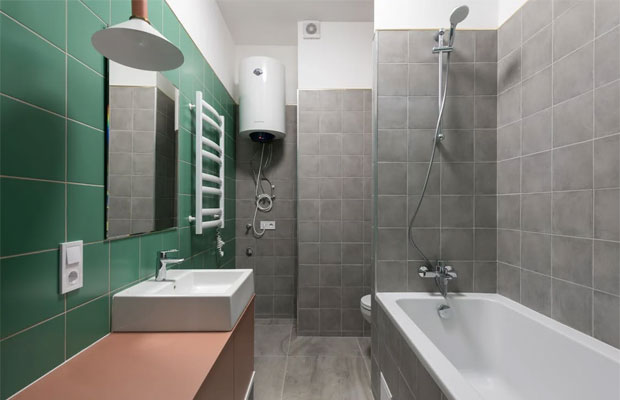Choosing Between Electric and Gas Hot Water Systems: Key Advantages and Drawbacks

Choosing Between Electric and Gas Hot Water Systems
The decision between electric and gas hot water systems is crucial for both homeowners and commercial property operators. Each type of system has its own benefits and challenges, making it important to weigh these factors before installation. Electric hot water systems are powered by electricity, whereas gas systems rely on natural or LPG gas to heat water. When choosing between electric and gas hot water systems, understanding the distinct features of each option can help in selecting the best fit for a property’s needs.
Understanding Electric Hot Water Systems
Electric hot water systems use electrical resistance elements to heat water within a storage tank. They are generally straightforward to install, as they only require an electrical connection, eliminating the need for gas lines. Upfront costs for electric systems are lower than those for gas systems due to their simpler installation requirements and fewer components. Routine maintenance is relatively minimal, mostly centred around ensuring the heating elements remain functional and the tank remains corrosion-free.
However, energy efficiency and environmental impact are essential considerations. Electric systems often consume more energy than gas systems, especially in regions where electricity is primarily generated from fossil fuels. This can impact both utility bills and carbon footprint. Electric hot water systems are ideal for situations where gas access is limited, or where ease of installation and maintenance is a priority.
Key Advantages of Electric Hot Water Systems
One of the primary advantages of electric hot water systems is the ease of installation. They do not require venting or any gas-related infrastructure, making them adaptable to a range of settings. This flexibility extends to placement options as well, allowing for greater choices in system location within a building.
Additionally, electric systems are low maintenance; their simplicity means fewer moving parts and less potential for mechanical failures. Safety is another strong point, as there’s no risk of gas leaks which are a concern with gas systems. Electric hot water systems provide consistent performance, unaffected by external weather conditions, ensuring reliable hot water availability.
Drawbacks of Electric Hot Water Systems
However, there are notable drawbacks associated with gas hot water systems. The installation is inherently more complex and can involve higher upfront costs due to the need for gas lines and venting. Safety concerns are also significant; potential gas leaks necessitate regular inspections and maintenance to ensure safe operation. Additionally, homeowners may encounter common problems with gas hot water systems, such as inconsistent heating or pilot lights, requiring prompt attention to maintain efficiency and safety.
Another concern is the vulnerability to power outages; when the electricity goes off, so does the hot water. Furthermore, the environmental impact is noteworthy, as reliance on predominantly fossil-fuelled electricity grids can be substantial, especially compared to systems using renewable energy sources.
Understanding Gas Hot Water Systems
Gas hot water systems operate by burning natural gas or LPG to heat water. Installation typically involves connecting to a gas supply and venting, which can be more complex than electric systems. Although the initial investment might be higher due to these installation needs, gas systems often offer more considerable savings over the life of the appliance due to lower fuel costs.
Efficiency ratings for gas systems tend to be higher in certain cases, especially when high-efficiency models are employed. Emission outputs are generally lower compared to coal-powered electric systems, potentially offering a more environmentally friendly option. They are particularly popular in areas where natural gas is readily available and cost-effective.
Key Advantages of Gas Hot Water Systems
Gas hot water systems showcase several compelling advantages. In terms of operational costs, gas is often cheaper than electricity, leading to more savings in energy bills over time. The systems also boast faster heating and quicker recovery times, making them ideal for larger households or commercial settings with significant hot water demands.
These systems provide the added benefit of independence from the electrical grid. In the event of a power outage, gas systems continue to function, ensuring ongoing hot water availability. Environmentally, using natural gas can be more positive compared to electricity from coal, with roughly half the emissions.
Drawbacks of Gas Hot Water Systems
However, there are notable drawbacks associated with gas hot water systems. The installation is inherently more complex and can involve higher upfront costs due to the need for gas lines and venting. Safety concerns are significant as well; potential gas leaks necessitate regular inspections and maintenance to ensure safe operation.
A further consideration is the dependence on a gas supply. In areas without reliable access to gas, infrastructure improvements can be costly and inconvenient. Additionally, the environmental disadvantages include the reliance on non-renewable gas sources, which still contribute to greenhouse gas emissions, albeit to a lesser extent than coal-powered electricity.
Conclusion – Choosing Between Electric and Gas Hot Water Systems
In summary, both electric and gas hot water systems come with distinct benefits and challenges. Electric systems are favoured for their ease of installation, low maintenance, and safety features, while gas systems offer lower long-term operational costs, faster heating, and greater independence from the electrical grid. Ultimately, the choice depends on individual needs, with considerations of energy efficiency, cost, and environmental impact. Prospective buyers are encouraged to assess their specific circumstances and consult professionals to receive tailored advice. By making an informed decision, they can ensure a reliable hot water supply that aligns with both their practical needs and environmental values.
Guest Article.




